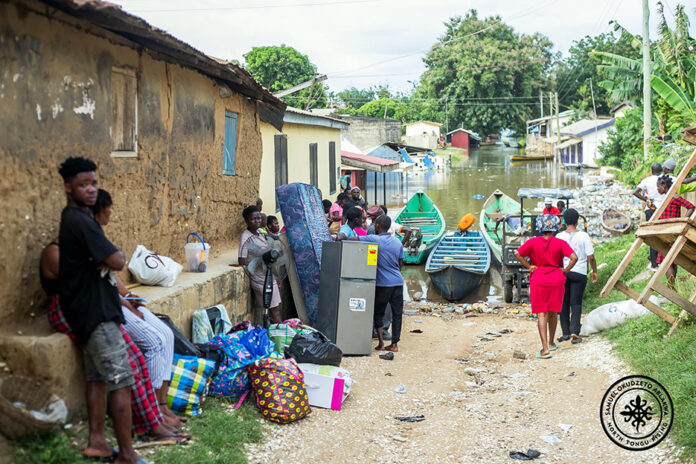
Quest 1: Why is VRA spilling? Ans: VRA is spilling because the water level in the reservoir has reached its safe operating level at this time of the year, so there is a need to release water from the reservoir to make room to be able to accommodate incoming flows. Without spilling, the water may overtop the dam and compromise its integrity.

Question 2. Why is it necessary for VRA to spill water instead of using it to generate electricity? Ans: All the available units are currently being used to generate electricity, however the water that is coming into the reservoir is still higher than the norm and as such generation alone cannot take out all the water. The water level may overtop the dam and cause uncontrolled discharge into the downstream communities if timely controlled spilling is not done.

Question 3. When was the last time Akosombo spilled water? Ans: The last time Akosombo spilled was in 2010

Question 4. What time of the year does spilling usually occur? Ans: We normally do not spill from the Akosombo dam, however if we have to spill in any given year, it is likely to happen from September to November, where a better understanding of the inflow quantity would have been determined.
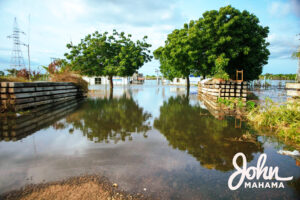
Question 5. How long does spilling last? Ans: The length of a spill exercise is determined by the volume of inflows into the reservoir and the level of the reservoir before the start of the spill. It differs on a case-by-case basis.
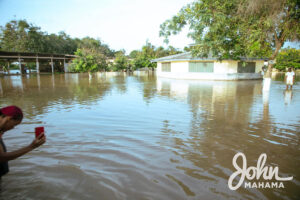
Question 6. How do you know when to start or stop spilling? Ans: We know when to stop or start spilling by monitoring the rainfall situation in our catchment area, the flows from our major tributaries and other global and regional weather updates which impact on inflows into the Akosombo reservoir.

Question 7 How do you reduce the impact of flooding when you perform spilling? Ans: We have an Emergency Preparedness Plan (EPP) that helps us to manage our spilling. We try to start the spill early as much as possible so that very minimal volumes will be spilled over a longer period. Where flooding is inevitable, the EPP provides a framework for us to collaborate with our downstream and other relevant stakeholders to manage the impact.
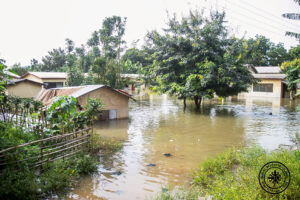
Question 8 How will I know if there is an increase in the spill volumes? Ans: We notify our stakeholders any time the spill volumes are adjusted.
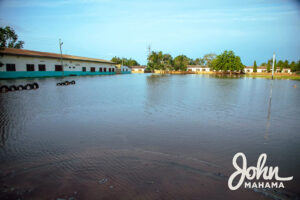
Question 9 Will VRA compensate those that lose any property through this spill? Ans: The key issues at stake now is to protect human lives and ensure the impacted persons are given the basic necessities of life.
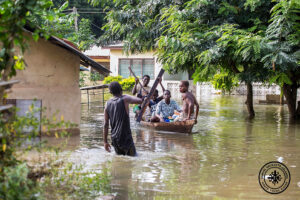
Question 10 Do you advise that I go fishing during the spill period? Ans: Due to the high levels of the water downstream of the Akosombo Dam, it will be necessary to take measures not to engage in any activities on the river during the period indicated for the spill, to ensure the safety of lives and prevent damage to property.

Question 11 What effect does the Bagre Dam have on the Akosombo Dam in terms of its spillage Ans: Spillage from Bagre Dam causes inundation of some upstream communities in Northern Ghana. It adds to inflow into the reservoir for power generation but does not significantly affect our inflow levels due to its size compared to the Akosombo reservoir.
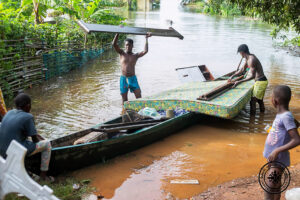
Question 12 Where is the Assembly point for the Potentially Affected Persons (PAP) during spilling from the Akosombo Dam? Ans: Safe Havens are the Assembly points and the signages are provided to inform the impacted communities of these locations. Established notification forms/channels will indicate the specific Safe Havens within the affected communities.
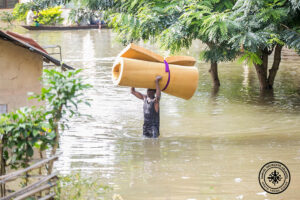 Question 13 What prevents you from running all the hydro units 24 hours a day for a full year in order to take advantage of the good inflows? Ans: In addition to electricity generation, generation from Akosombo and Kpong are used by the GRID operator to manage the stability of the power system.
Question 13 What prevents you from running all the hydro units 24 hours a day for a full year in order to take advantage of the good inflows? Ans: In addition to electricity generation, generation from Akosombo and Kpong are used by the GRID operator to manage the stability of the power system.
The Units also have planned maintenance schedules that must be complied with in order to maintain the integrity of the plants. There are therefore times that some of the units are used to provide other system support services or are taken out for maintenance purposes.
Source:VRA

